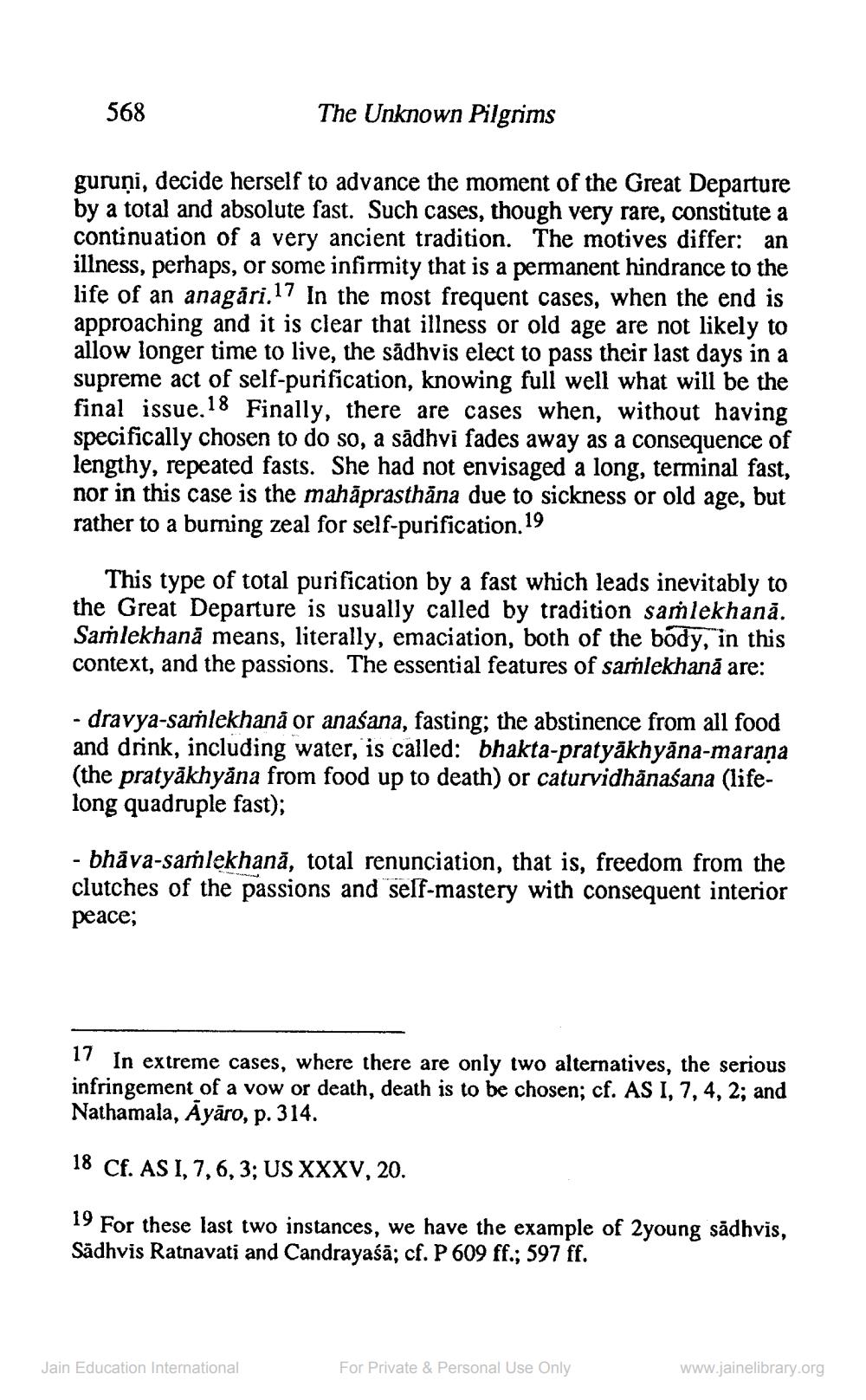________________
568
The Unknown Pilgrims
guruņi, decide herself to advance the moment of the Great Departure by a total and absolute fast. Such cases, though very rare, constitute a continuation of a very ancient tradition. The motives differ: an illness, perhaps, or some infirmity that is a permanent hindrance to the life of an anagari.17 In the most frequent cases, when the end is approaching and it is clear that illness or old age are not likely to llow longer time to live, the sãdhvis elect to pass their last days in a supreme act of self-purification, knowing full well what will be the final issue.18 Finally, there are cases when, without having specifically chosen to do so, a sādhvi fades away as a consequence of lengthy, repeated fasts. She had not envisaged a long, terminal fast, nor in this case is the mahāprasthāna due to sickness or old age, but rather to a burning zeal for self-purification. 19
This type of total purification by a fast which leads inevitably to the Great Departure is usually called by tradition saṁlekhană. Samlekhanā means, literally, emaciation, both of the body, in this context, and the passions. The essential features of samlekhană are:
- dravya-saṁlekhaná or anaśana, fasting; the abstinence from all food and drink, including water, is called: bhakta-pratyākhyāna-maraņa (the pratyākhyāna from food up to death) or caturvidhanasana (lifelong quadruple fast);
- bhāva-saṁlekhană, total renunciation, that is, freedom from the clutches of the passions and self-mastery with consequent interior peace;
17 In extreme cases, where there are only two alternatives, the serious infringement of a vow or death, death is to be chosen; cf. AS I, 7, 4, 2; and Nathamala, Āyāro, p. 314.
18 Cf. AS 1, 7, 6,3; US XXXV, 20.
19 For these last two instances, we have the example of 2young sädhvis, Sadhvis Ratnavati and Candrayaśā; cf. P 609 ff.; 597 ff.
Jain Education International
For Private & Personal Use Only
www.jainelibrary.org




